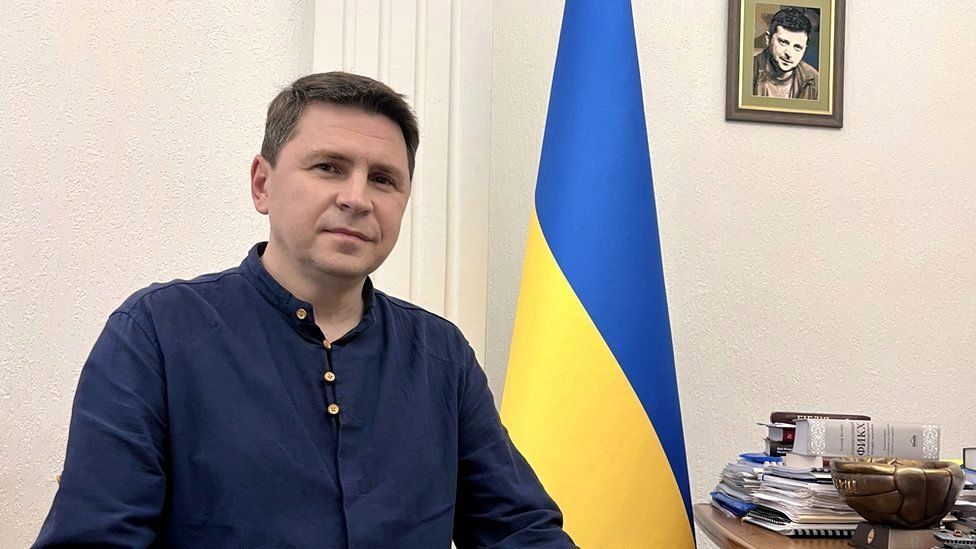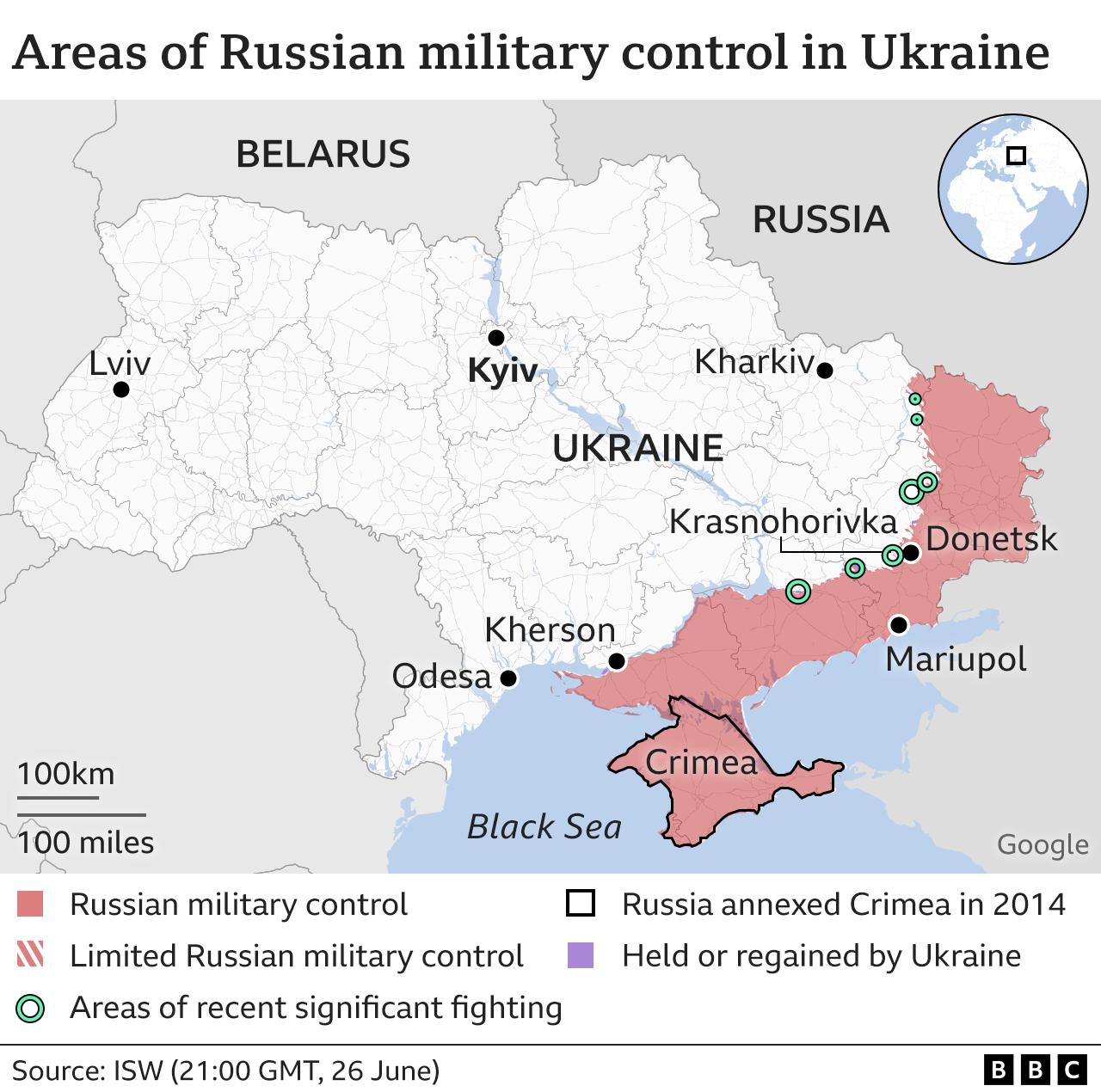
This article is more than
2 year old
The drama over the border in Russia has hardened the view in Kyiv that Mr Putin's time as Russia's president is coming to an end.
"I think the countdown has started," said Andriy Yermak, President Zelensky's closest adviser.
At a briefing in Kyiv, he looked back to the year that Russia first invaded Ukraine, annexing the Crimean Peninsula.
"What Ukraine has seen since 2014 has become evident for the entire world," said Mr Yermak.
"This [Russia] is a terrorist country whose leader is an inadequate person who has lost connection with reality. The world must conclude that it's impossible to have any kind of serious relationship with that country."
Senior Ukrainian officials who spoke to the BBC here in Kyiv all argued that President Putin could not ride out a catastrophic loss of authority.
It started, they said, with his disastrous decision to mount a full-scale invasion of Ukraine in February last year. The Wagner mutiny, and Mr Prigozhin's denunciation of the Kremlin's justifications for the war have, they said, removed what remained of Mr Putin's chances of hanging on.
"The Putin regime" one of them insisted, "cannot be saved."
It is vital to remember that anything Ukrainians, especially the ones running the country, say about their Russian enemies comes in the heat of a fight that they see, correctly, as a struggle for national survival.
The Ukrainians have fought a clever media war, and they are remarkably consistent in the messages that they deliver to their own people and their Western allies, as well as their enemies in Moscow.
Wishful thinking must play a part in the assessments they share with journalists.
But it is still worth spending time getting their views of the crisis that has engulfed the presidency of their mortal enemy Vladimir Putin.
Without doubt, he is facing the most serious challenge to his authority since he first became president in 2000.
Other senior officials in Kyiv say they are convinced that Mr Putin is opposed by informal but organised networks of disenchanted insiders.
In his office, Oleksiy Danilov, the secretary of Ukraine's National Security and Defence Council, told the BBC that "Prigozhin is not the most senior. They might become the new political elite".
Mr Danilov said they included security forces, officials and representatives of Russia's oligarchs, who believe that Mr Putin's decision to launch a full invasion of Ukraine in February last year has been a personal disaster for them as well as a threat to Russia.
Mr Danilov, a man in his early sixties wearing a black military-style outfit with his surname on a badge on his chest, bristled for a moment when I asked if he had proof to back up his analysis.
"I'm not speculating," he insisted. "We know who these people are, we know about their lives."

Mykhailo Podolyak, another close adviser to President Zelensky, agreed there were "several groups of people who want to take power in Russia".
The system Mr Putin built, top-down and authoritarian, was, he claimed, being replaced by a near vacuum at the centre of power.
Another senior official, who spoke on condition he was not named, went further, suggesting that President Putin would be forced to dismiss his Defence Minister Sergei Shoigu and Chief of Staff General Valery Gerasimov, perhaps as a response to another military setback.
Firing the two men was a key demand of Yevgeny Prigozhin and his Wagner mutineers.
"Prigozhin will get what he wanted," the official predicted. "His political life is not finished. He won't stay in exile in Belarus."
As for Ukraine's offensive, Mr Podolyak said the Wagner mutiny did not last long enough to influence the fighting along a front of 1,800 kilometres, the longest - he said - in any war since 1945.
It is clear to the most dispassionate observer of the war that Ukraine is having to fight very hard, and take casualties in troops and equipment, including the armour supplied by Nato.
When I asked the official who wanted to remain anonymous about recent tactical gains in the east, including a handful of small villages, he lifted his hand with his finger and thumb pinching the air perhaps half an inch apart.
His message was that progress has been slow, painful and limited, though he expressed hope that might change.

Senior Ukrainians are still doing their best to manage expectations about the summer offensive. They believe some of their Western allies, as well as supporters in the media, have become over-excited about Ukraine's army and its Nato equipment.
Some Ukrainian officials acknowledged the fear that gives Western leaders sleepless nights, that a public collapse of President Putin's regime might lead to real danger as his would-be successors jockey for power in a state with the world's biggest arsenal of nuclear weapons.
That prospect is sure to be high on the agenda of the Nato summit, due to meet in Lithuania next month.
President Zelensky and his advisers want the summit to give them a firm and unequivocal path to Nato membership. They believe the best answer to the instability in Russia is to present an iron wall to Moscow.
But the uncertainty surrounding President Putin and his regime, almost a year and a half into a disastrous war and after the Wagner drama, might feed the anxiety of those Nato countries who would prefer the war to end around the negotiating table, not on the battlefield.